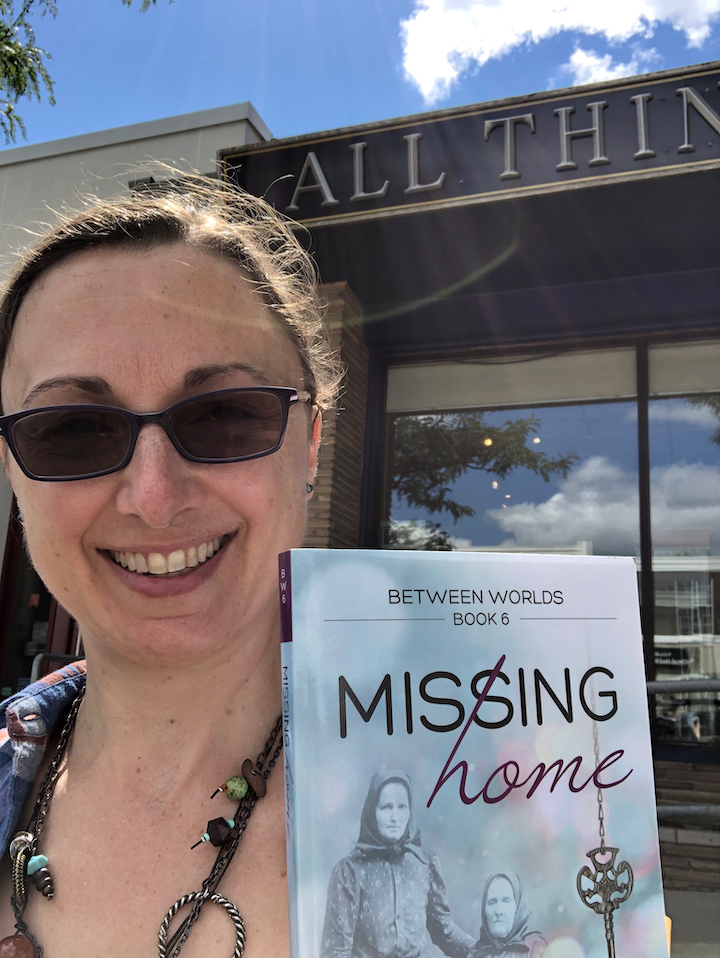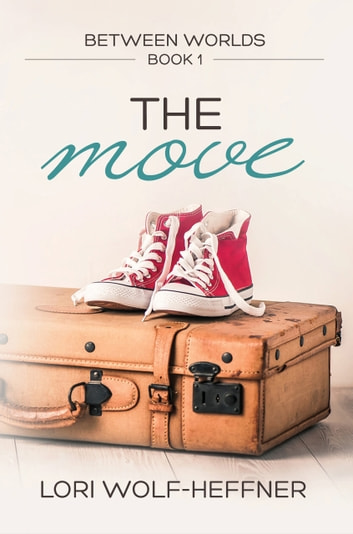Can a sketchbook from the past help Juliana move forward?
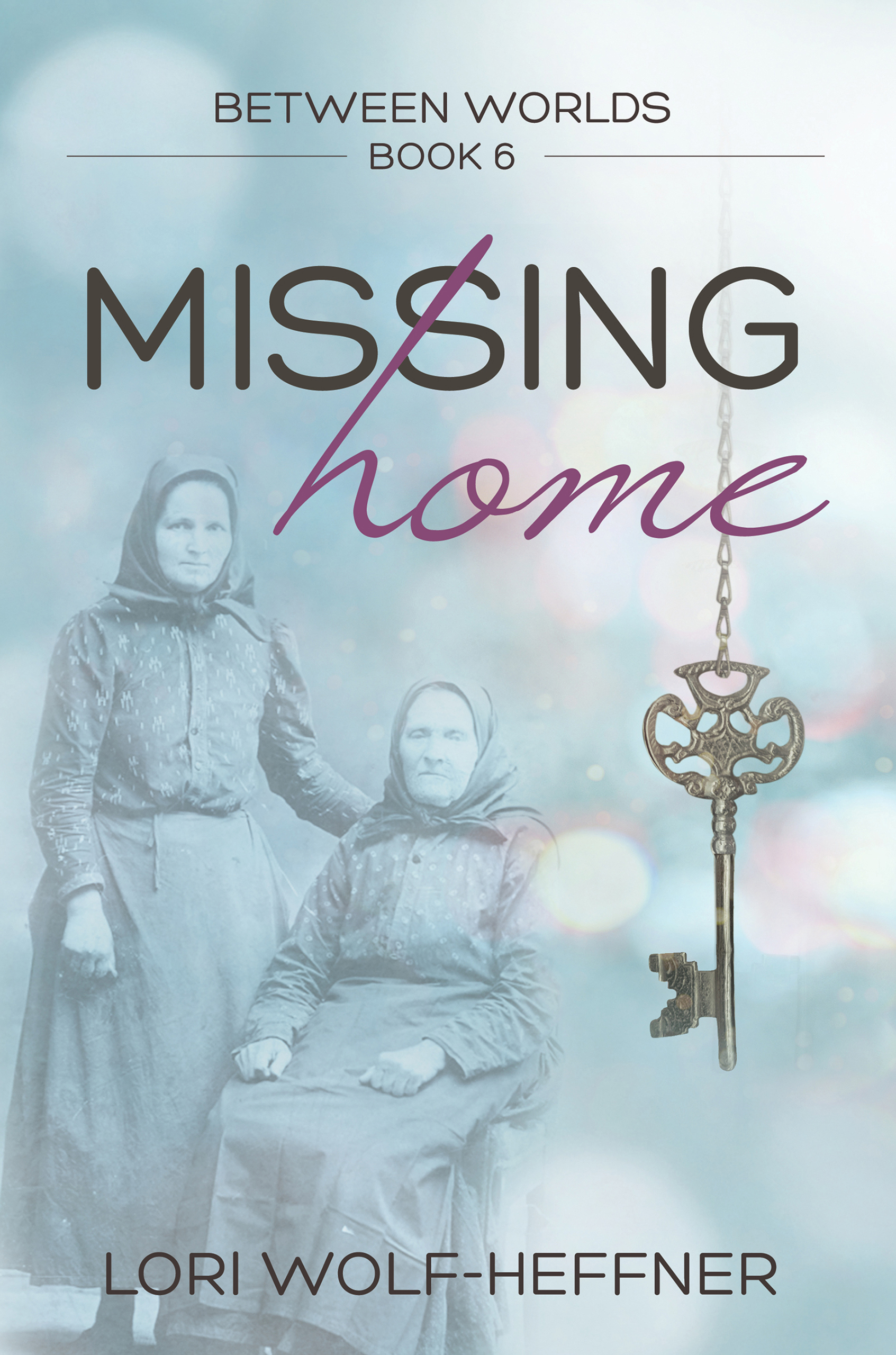
Between Worlds 6: Missing Home
Can a move half way across the country be a blessing in disguise?
Juliana is trapped between Opa and Mom: Opa doesn't understand why his daughter ever left home, and Mom is doing everything possible to not spend time with her father. Juliana has had enough! But with her parents always working and her best friend half way across the country, Juliana wonders who she can rely on for help. To soothe her feelings of despair, she turns to her great-grandmother’s sketchbook.
Elisabeth feels Tata’s absence everywhere, especially at this important time in her life, her confirmation, when she becomes an adult in their church. But when schoolboys torment her younger sister because Tata has left their community, and Mammi mysteriously locks herself away in the shoemaking workshop, Elisabeth has no choice but to seek help from the very people Mammi despises: Tata’s family.
As both girls begin forging new bonds with family they’ve become closer to only after those life-changing moves so many months ago, they ask themselves: can something positive come out of something that at first seemed so devastating?
Missing Home is the sixth book in Lori Wolf-Heffner’s contemporary/historical series, Between Worlds. For those who love history, the arts, and family ties, pick up a copy of Missing Home and enjoy a story that crosses generations.
"An enjoyable story of two young women experiencing challenges in their lives over which they have no control. Learning what they do have control over is part of the journey. A well written story with some interesting historical detail. Thanks Lori Wolf-Heffner for the reading pleasure."
 ReaderGoodreads
ReaderGoodreads"Each story in the series feels more like you’re part of the Schuhmacher family. The writing is more and more evolved, and with each subsequent novel, the character development is growing."
 ReaderGoodreads
ReaderGoodreadsBuy Between Worlds: Missing Home
Canada
US
International
Take a Peek...
When Juliana opened the door to the hotel room, her mouth dropped. Beyond the foyer, the room expanded into two: the main living area, complete with a couch, queen-sized bed, armchair, and desk; and a separate bedroom with a king-sized bed connected to the ensuite.
“Gott im Himmel!” Opa exclaimed, clapping his hands to his cheeks. “How expensive was this, Katy?”
Juliana didn’t care: the room was awesome.
“It’s a standard room at this hotel,” Mom said. “A lot of hotels these days are going this direction, and this one is newer.”
All three squeezed through the foyer and Opa immediately put his suitcase on the couch. For a moment, Juliana wondered if she and Mom actually got the massive, king-sized bed. However, Mom corrected that intwo seconds.
“Tata, you’re sleeping in the master bedroom.”
Opa stared at his daughter in amazement. “That bed is for me? Katy, I don’t need such a big bed. I can sleep on a smaller bed.”
Juliana heard Mom take a breath. The one-hour drive from Waterloo to Toronto had actually been quite pleasant. However, once they had entered Ontario’s capital, something changed. It was as though Opa was seeing the city for the first time although Mom kept talking about the different trips they had taken as a family to the big city, getting agitated that Opa didn’t seem to recall the trips. Opa’s memories came back, but Mom’s agitation never fully left.
“Like I said, this room is standard. It’s easier for hotel staff to change one queen-sized bed than it is to do two single beds,” Mom explained.
“This is too expensive, Katy,” Opa said. “Can we get another room?”
Mom threw her suitcase next to Opa’s. Juliana couldn’t tell if Mom had thrown it because she was angry or because it was heavy.
“I’m sure the hotel is fully booked this weekend,” Mom said. “We can’t get another room.”
“Then I’m going to pay you back for my part of the room,” said Opa. “I can’t let you pay for this for me.”
Mom yanked Opa’s suitcase off the bed and rolled it behind her into the master bedroom. She placed it on the luggage rack in the closet and opened it up.
“Your clothing will stay in here,” she said. “And the bathroom is over here.” She beckoned to Opa to follow her, and Juliana followed behind him. As Mom showed Opa how everything worked, Juliana’s nerves tingled and she jumped up and down to shake her anxiety out. On the one hand, she was excited because her dancing had improved and she was sure she would perform better this time. On the other hand, she worried Opa’s unpredictable behaviour might embarrass her.
Be nice, she scolded herself. You know what the counsellor said: he can’t help himself, even though he really wants to.
“I can’t wait to see you dance, Yulika,” Opa said. “With a beautiful hotel room like this, you’ll be able to sleep well. Sleep is really important for young people.” He turned to face his daughter again. “But Katy, I know you and Peter and Annie are saving money for my care. You can’t afford this hotel room. Had someone told me how expensive this would be, I would have stayed home.”
Mom crossed her arms, took a deep breath and let it out, something she normally did after she was done being mad. However, Mom was becoming angrier, not calming down. “Tata, stop it. You wanted to see Juliana dance—you said yesterday it was really important for you to support your family—and we want you to see her, too. If you really enjoy it, we can certainly bring you along more often. Just stop complaining about the cost.”
Opa pulled his shoulders back and looked his daughter square in the eye. He then responded in German.
When he finished, Mom said, “You keep saying how important family is to you, so here we are.”
Opa replied again in German.
“We can afford this. Trust me: This is the cheapest part of the competition. Stop worrying.”
Opa spoke louder when he responded, still in German.Juliana didn’t know what he was saying but she could hear the stubbornness in his voice.
“Tata,” Mom said, completely exasperated now. “We’re not going to waste time driving back and forth! Juliana has an early morning on Sunday, and I don’t want to risk getting stuck in traffic! Please! For once in your life stop worrying about how much everything costs!”
As the argument continued— Opa in German and Mom in English— Juliana’s fists balled up in frustration. Didn’t Mom see that Opa didn’t understand? Mom was losing her patience with Opa really fast, when the counsellor had told them several times to do the exact opposite, to show him patience. But if Juliana said anything, that would make Mom angry, when now was probably not the right time to do that. Besides, Opa seemed to be fighting back on his own just fine.
Not knowing how to help— and feeling she probably shouldn’t even intervene— Juliana slid out of the master bedroom and sat in the armchair by the sliding door to the patio. She pulled out her phone, stuck in her earbuds, and scrolled through her social media feeds as she tried to drown out Mom and Opa’s shouting. She understood that coming home to live with Opa was hard on Mom, but at the same time, Mom had wanted them to all move. So why was she arguing with Opa like this?
Elisabeth stopped and turned to face the church. The small, single-room yellow building with its lone steeple and empty belfry suddenly looked foreboding. Its two large wooden doors, currently closed, would soon open up to begin one of the most important events in Elisabeth’s life. Even though Elisabeth had come here every Sunday since she was born, today she would be asked several questions in front of the congregation along with the other confirmands to demonstrate that she was ready to take responsibility for her relationship with God. By showing how much she believed and had learned, she would be able to receive Holy Communion, and at the end, she would become a großmädchen, one of the young, unmarried, confirmed women in the church. The boys would become großbuben.
But what if she dropped the host during communion? Or said the wrong words at the wrong time? She was glad she didn’t have to be the one to speak on behalf of the confirmation class, the one who had to write and memorize a short speech that said the confirmands were taking leave of their parents and becoming responsible for their own actions.
“Stop worrying,” Maria said. “You will be fine.”
Elisabeth smiled at her best friend. “You’re always sogood at trying to lift my spirits.”
“I know how important today is. I did this last year, and it was the best day of my life!” Maria’s face broke out into a big smile. “But I didn’t study half as much as you have. So, once again, Elisabeth Schuhmacher, you will be fine!”
Elisabeth squeezed Maria’s arm with her other hand. Thank you, Jesus, for such a good friend. “Have you looked at my dress?” Elisabeth took a step back so Maria could see it better. “And my new shawl?” Maria gasped in astonishment as she took in Elisabeth’s clothing. Elisabeth continued. “Mammi took extra time to prepare my dress for me and to embroider this shawl. She wants this day to be special.”
“You’re the first child to be confirmed in your family. Of course today is very special for her.”
“And Luki even made sure my shoes were clean.” Elisabeth pushed out one foot, showing her shiny but plain black satin slipper. Maria had begged Mammi not too long ago to make more modern designs, but Mammi was too busy repairing regular shoes in time for Easter to try something new. Tata would have done that for me had he been here, she thought. “I’m still nervous, though.”
Maria turned Elisabeth to face away from the church and toward the church yard, where everyone else was still talking with their friends and family. “Look, Lissika. You’re not the only eldest child in the family here.” She pointed out several of the other confirmands and Elisabeth saw her cousin, Little Sophie—so called because her mother was Sophie-Néni—one of the other eleven confirmands today. Seeing her immediately reminded Elisabeth of Andreas-Bátschi and Adam-Bátschi, Mammi’s brothers who had died in the war. Within a few moments, Elisabeth saw their widows’ new families. Elisabeth’s eyes passed over the entire church yard, noticing all the missing fathers and brothers. Semlak had lost fifty-one men to that war, but more were missing today because Romania was still at war with Hungary. Thankfully, so far as she knew, there was little bloodshed in the Romanian-Hungarian war.
Elisabeth felt she had more in common with families whose father was missing—for whatever reason—than she did with the few who were the eldest in the family.
“Why are you suddenly sad?” Maria asked. “It’s your special... ohhhh... Your father isn’t here.” Maria knew Elisabeth too well. Elisabeth nodded.
Like a cruel joke, Peter-Bátschi, his other three children, and Omama arrived just then. Little Sophie ran over to her father. He laid his hands on her shoulders, smiled, and said something to his daughter. The other Braun children began running around the church yard to find their friends.
“They are such wild animals,” Maria said.
Elisabeth wanted to agree with her, but she couldn’t rid herself of the small pang of jealousy she felt. Why hadn’t her father waited one more year before leaving? Tata could even have left after Elisabeth’s confirmation—he would’ve only had to wait another four months. And although Elisabeth hoped she would marry in the next year or two, she didn’t know for sure if that would happen: Tata might choose to stay in America until she was engaged, or even a little longer. But at least he would have been here for today.
“Elisabeth!” Stefan waved his hat and rushed over to her.
A mischievous smile on her face, Maria said, “Oh, dear, I think I hear my mother calling me. I’d better go!”
Elisabeth shot Maria a look, and Maria grinned even more, though she kept her back to Stefan. Then she ran off.
To Elisabeth’s relief, Georg and his brother, Samuel, and Georg’s wife, Eva, were not far behind Stefan: they were slower because Georg only rushed if someone was in trouble, and Samuel limped because he’d had polio as a child. Eva didn’t run because she was a married woman and it would have been improper.
“I wish you all the luck in the world today!” Stefan said. That he had been through so much because of the war and could still show such happiness made his joy contagious.
“Thank you.” Elisabeth’s cheeks became hot.
Georg and Samuel caught up. Samuel also gave Elisabeth a hearty hello, and this time Georg said hello, too, though only loud enough for Elisabeth to barely hear it.
Eva, by contrast, exclaimed, “Lissika! What a special day for you!” She and Elisabeth kissed on both cheeks. “You must be so happy!” Not old enough to wear only black, like their mothers did, Eva was dressed in dark blues and blacks from the headscarf on her head to her feet—except for her socks—the lack of colour contrasting starkly with the bright personality she showed in public.
“You’d better pass today,” Samuel said playfully. “Lissi and I had to get up extra early so we could be here ontime.” Samuel’s wife was also named Elisabeth as were many other women in the church. He called her Lissi, but everyone else in the congregation called her Deaf Lissi. An ancestor of hers had been deaf, and the nickname had been passed down through the family. Samuel’s wife could hear just fine, though.
“Now I’m even more nervous,” Elisabeth said with a laugh.
“You’ll do fine,” Stefan replied. “You’ve been studying very hard.”
Elisabeth saw the other confirmands heading across the street to the pastor’s house, where they were to all meet beforehand. She excused herself and ran to catch up with them.
The Between Worlds Series
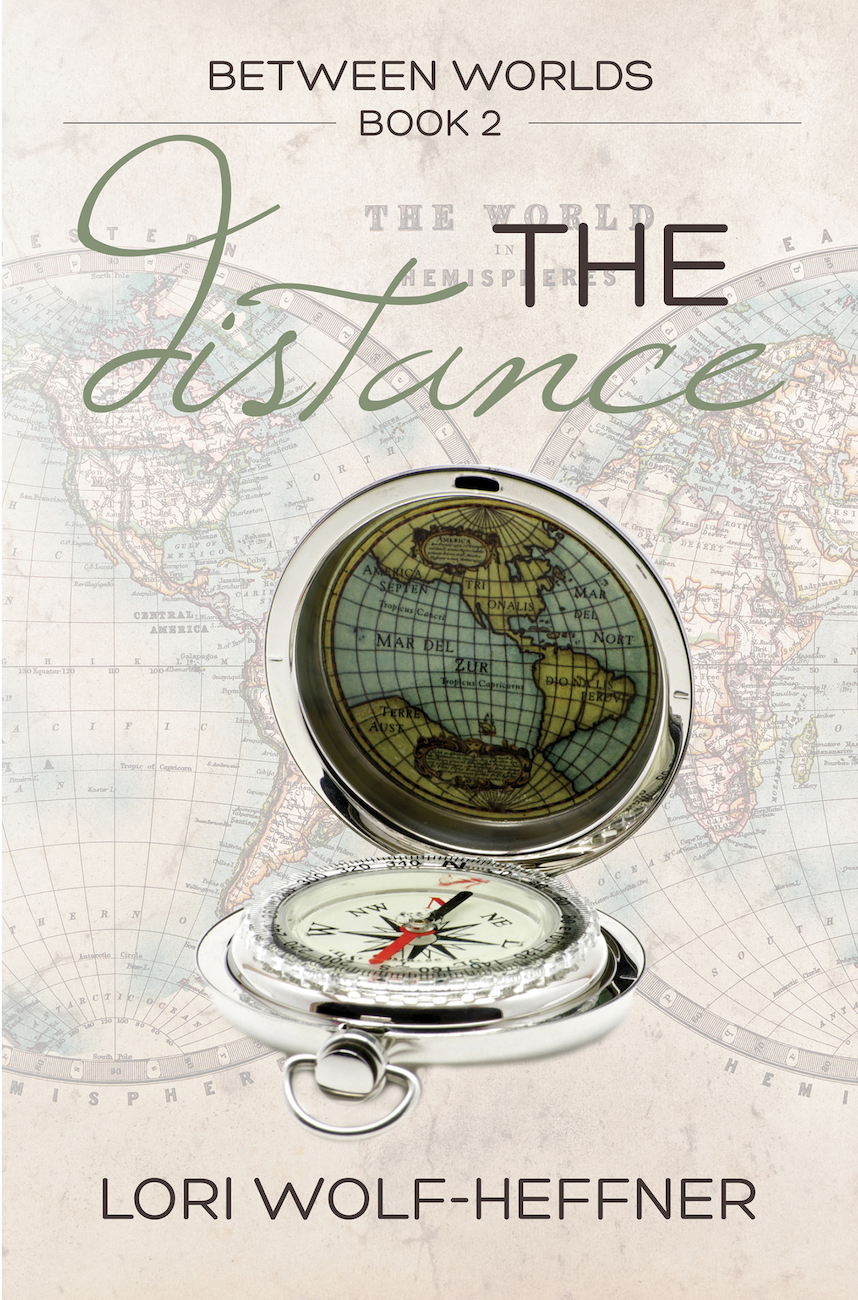
Between Worlds 2: The Distance
How can family rifts be healed when problems from the past keeps pulling them apart?
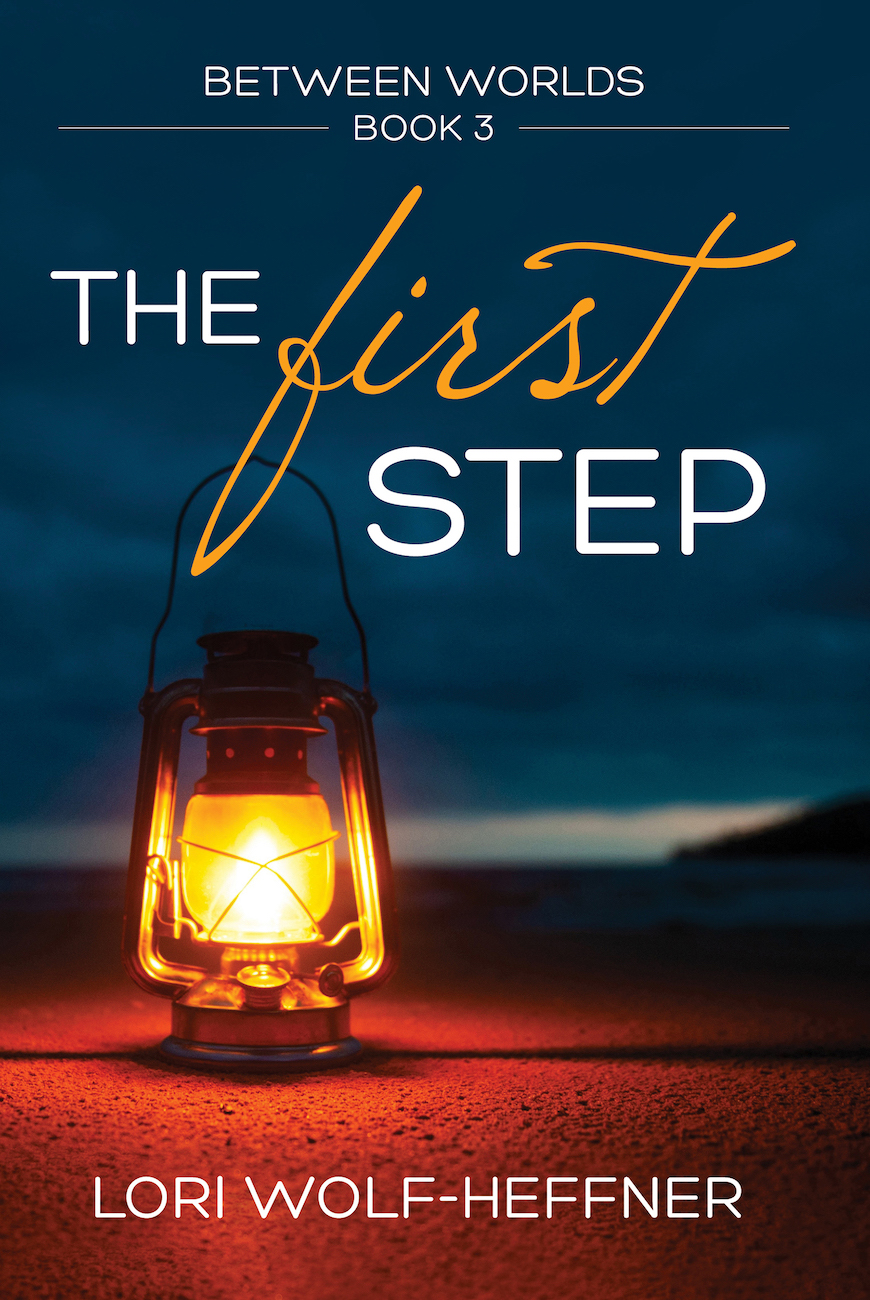
Between Worlds 3: The First Step
Growing up is hard enough. Why does family have to make it harder?

Between Worlds 4: What Friends Do
Friends hold our hands and light the way through tragedy, no matter how far away they live.

Between Worlds 5: Hide And Seek
When do you give up on a search for a family treasure?

Between Worlds 6: Missing Home
Can a move half way across the country be a blessing in disguise?

Between Worlds 7: What Will Come
Time will march forward, no matter how terrifying the future seems.

Between Worlds 8: A Father's Journey
Sometimes a parent’s love, even when deeply desired, can become overwhelming.
All books are also avaliable in large print!
About Lori Wolf-Heffner
Lori Wolf-Heffner began baton twirling as a toddler. But one bonk on the head from that shiny stick sent her to jazz class instead, leading Lori into a successful competition dance career that culminated with becoming an inaugural member of the Canadian National Tap Team in 1996.
In 2015, the Canadian Senior Artists' Resource Network accepted Lori into their one-year mentorship program. Mentored by Carol McQuaig, Lori wrote the first version of Postcards in a Closet, a creative non-fiction memoir about Katharina Wolf, a great-grandmother who was a single mom-to-be in the aftermath of World War I. At first printed only for family, Lori published it later for the public.
Inspired by her great-grandmother’s story, Lori wrote and published Between Worlds 1: The Move in 2018. The rest, as they say, is history.
